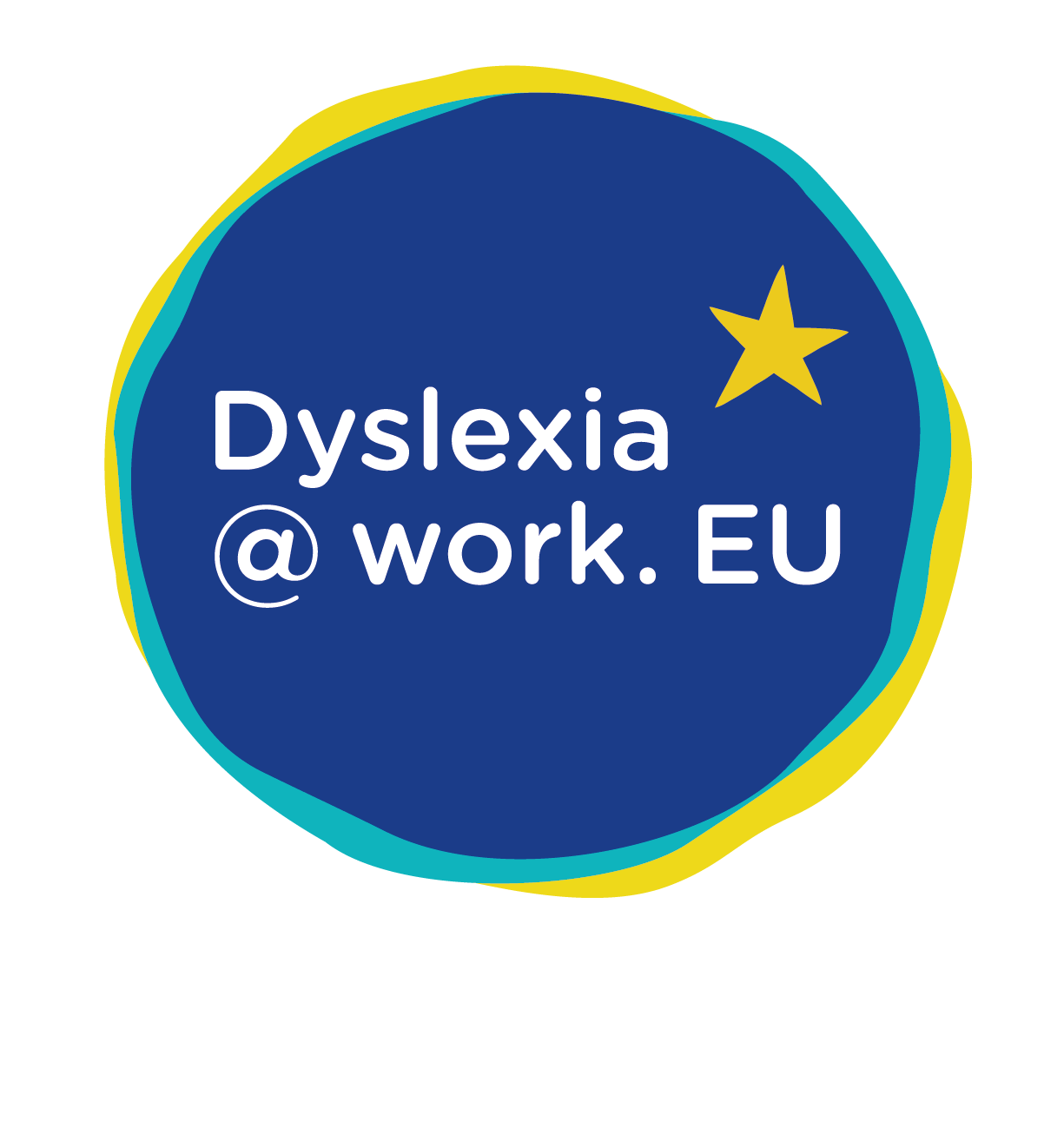PHASE ONE – A Comparative Analysis of Laws and Regulations in the 5 European countries participating in the Dyslexia@Work project
The Comparative Analysis document summarizes and compares the laws and other regulations implemented in the 5 European countries participating in the dyslexia@work.eu project (Italy, France, United Kingdom, Ireland, Malta).
Generally, other European countries differ from Italy since dyslexia in legislative acts is still considered within the scope of disability, and therefore covered by all the rules provided for the conditions of disability. The laws for the school environment are usually separate from those for the world of work, but in some countries there are general rules that apply to both sectors, for example, in UK, the Equality Act.
The implementation of support measures in the workplace usually requires recognition of disability, which is common practice in other countries. Job placement, particularly in the public sector, is also facilitated in other countries, if the person declares his or her dyslexia and this has been recognized as a disability. In Italy, according to law 68/1999, one can access a targeted job placement only if a disability of more than 45% has been recognized.
There are no statistics on the prevalence of dyslexia in the workforce: in the different countries there are only data on the percentage of people with disabilities.
Generally, in the procedures of access to work and then in the workplace, in several countries “reasonable adaptations” are guaranteed, consequent to the condition of disability. With regard to professional qualification and access or qualification exams for various job positions, generally in other countries, in articulated and complex forms, support measures are guaranteed according to the characteristics of the person and the type of tasks required, but always falling into the category of disability.
With regard to driving license exams, in many countries both extra time and the possibility of an assistant reading the questions are available, while in Italy only listening to the audio files relating to the questions is allowed.
While there are several reports of case law in the school environment, those in the workplace are very rare, some examples are reported in Ireland and the United Kingdom, with worker-friendly resolutions under anti-discrimination laws.
The possibility of making the voice of dyslexic people heard at the institutional level is very varied in different countries.
The Phase One Comparative Analysis report can be downloaded below:
PHASE TWO – Action Research
Phase two of the project was an Action Research phase aiming to bring to light knowledge, skills and good practices in terms of dyslexia and SLDs by workers and professionals who work in various capacities within companies and employment agencies in the five participating countries. 106 structured interviews were conducted with sector operators in the various countries involved in the project, including employers, HR managers and recruitment consultants. This cross-national survey allowed us to identify (1) the level of knowledge and skills on dyslexia and SLDs and (2) any practices and methodologies adopted in the orientation process, selection, management and development of personnel. The results of this study, together with what emerged in the first phase of the project, represent the starting point in defining guidelines and operational indications to implement orientation methodologies, selection, management and development of personnel that are dyslexia friendly.
The study showed some examples of good practice in the workplace and this will be further developed in the third phase of the dyslexia@work project. However, the interview data revealed a general lack of knowledge and awareness of SLD issues for those involved in job placement, both within companies and employment agencies. With the limited representation of companies and agencies in each of the five countries, the situation appeared to be less favourable in Italy and France, while a more structured and overall more inclusive approach emerged in the English-speaking countries of the study. Most companies and agencies interviewed, except for some English and Irish ones, do not provide internal training courses on this topic nor do they apply methodologies or procedures specifically for dyslexia. Although in most cases, general inclusion policies are declared, it is however up to the dyslexic worker to disclose whether they have the disorder and then to explicitly request reasonable adjustments. The fact that the United Kingdom and Ireland both exhibit a greater willingness in terms of providing support and training courses on the subject, confirms the lack of shared and systematically applied practices. The absence of legislation specifically in relation to dyslexia in the workplace, together with a lack of guidelines and operational indications, is probably the main cause for these gaps and irregularities between and within these countries.
In light of this, there is a clear need to intervene in terms of favouring a debate involving institutions to expand and clarify current regulations, as well as in defining common practices aimed at supporting job placement and professional success for those with SLDs, thus eliminating potential discrimination and furthermore, ensuring equal opportunities in the workplace.
The Phase 2 Action Research report can be downloaded below:
PHASE THREE – Development of Guidelines to support dyslexia in the workplace
We are delighted to share the outputs of the final phase of the project, a project manual and guidelines on dyslexia in the workplace which you can download below in English, Italian and French. These have been informed by the earlier research phases and aim to provide operators (counsellors, recruiters, employers, HR manager, operators of public institutions, etc.) with the appropriate tools to identify and enhance the real potential of dyslexic workers. We hope they are helpful in developing awareness and implementing strategies to support dyslexia inclusion in workplaces across Europe.
The Guidelines can be downloaded below:
The Project Manual can be downloaded below:
